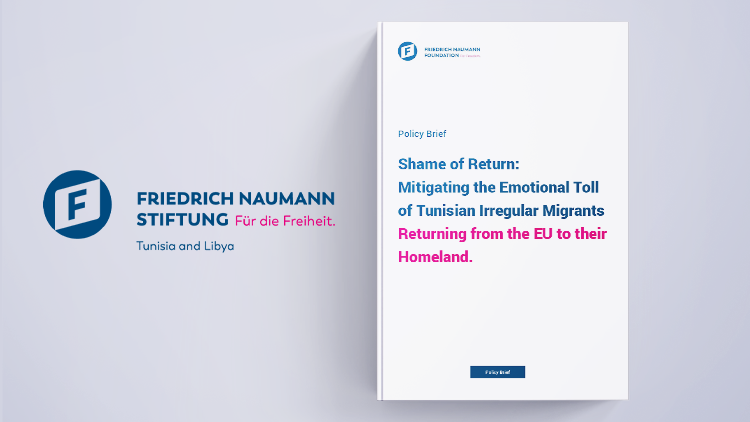Policy Brief
Shame of Return: Mitigating the Emotional Toll of Tunisian Irregular Migrants Returning from the EU to their Homeland

Shame of Return: Why Reintegration Must Begin with Dignity
By Dania Yousfi | Published by the Friedrich Naumann Foundation for Freedom
In recent years, the return of Tunisian irregular migrants from Europe has become a growing phenomenon and a silent crisis. Whether deported forcibly or through assisted voluntary return (AVR), these individuals come back not to a fresh start, but to a society that often greets them with judgment, legal complications, and social exclusion.
Our newly released policy brief, Shame of Return, explores how this process of coming home has become emotionally traumatic for many Tunisians. The brief identifies key drivers of irregular migration, the political frameworks governing returns, and most critically the devastating psychological consequences that are often overlooked.
A Return Marked by Trauma
The journey does not end with the crossing of the Mediterranean. In many cases, the trauma begins there: harrowing sea voyages, detention under inhumane conditions, and abuse by border authorities. Once returned, individuals report police violence, legal threats, social stigma, and the overwhelming sense of having "failed."
Rather than finding support, many returnees encounter suspicion and shame. A 2018 survey found that many returnees compared deportation to death—emotionally, socially, and psychologically. Cases of self-harm, isolation, and substance abuse are becoming increasingly common among this vulnerable population.
Mental Health: The Missing Link in Reintegration
The mental health of returnees is neither systematically monitored nor supported. Tunisia allocates just 1% of its already modest health budget to mental health a stark mismatch considering the scale of return migration and its associated psychological impacts.
Feelings of failure, hopelessness, and social alienation have led many to reattempt migration despite the dangers. Some, unable to cope, contemplate self-destructive paths. Without intervention, this cycle will continue.
Policy Recommendations
The brief calls for urgent, coordinated action:
- From the EU: Humane detention conditions, psychosocial reintegration funding, and improved AVR protocols.
- From Tunisia: Legal reform to protect returnees, capacity-building for police, and partnerships with NGOs to provide mental health support.
A return home should be a new beginning, not a second exile.

